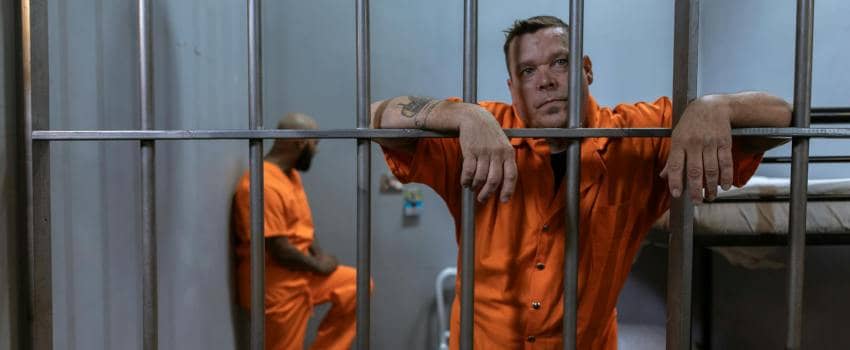RICO Charges | What is RICO

Unraveling RICO: Understanding the Intricacies of the Racketeer Influenced and Corrupt Organizations Act
What is RICO
The Racketeer Influenced and Corrupt Organizations Act, commonly known as RICO, is a powerful legal tool designed to combat organized crime and corrupt activities within and across various industries. 1
Over time, the use of this act has been broadened far beyond its original intent. Per the Justia website, "While RICO was originally aimed at the Mafia, over the past 37 years, prosecutors have used it to attack many forms of organized crime: street gangs, cartels, corrupt police departments, and even corrupt, politicians." 2
Enacted in 1970 as part of the Organized Crime Control Act, these laws have been instrumental in addressing complex criminal enterprises. This article delves into the intricacies of RICO, examining its origins, key provisions, and its present use by law enforcement and the criminal justice system.
Origins of the Racketeer Influenced and Corrupt Organizations Act
The RICO Act emerged in response to the escalating threat of organized crime in the United States during the mid-20th century. The legislation was created to provide law enforcement with a robust framework to dismantle criminal organizations.
More specifically, it was designed to fight activities of organized criminal activities such as racketeering, money laundering, bribery, and similar organized criminal practices.
Key Provisions
Enterprise and Pattern of Racketeering Activity
RICO defines an "enterprise" as any individual, partnership, corporation, association, or other legal entity, or group of individuals associated in fact.
What Constitutes a Pattern of Racketeering Activity?
Per the LawInsider website, "Pattern of racketeering activity means engaging in at least two incidents of racketeering activity that have the same or similar intents, results, accomplices, victims or methods of commission or otherwise are interrelated by distinguishing characteristics, including a nexus to the same enterprise, and are not isolated incidents, provided at least one of such incidents occurred after November 1, 1981, and that the last of such incidents occurred within five years after a prior incident of racketeering activity." 3
Racketeering activity encompasses a wide range of crimes, including bribery, extortion, fraud, money laundering, obstruction of justice, and various state offenses.
Individuals can be charged under the Racketeer Influenced and Corrupt Organizations Act if they engage in the affairs of an enterprise through a pattern of racketeering activity.
RICO also makes it illegal to invest income derived from racketeering activities in any enterprise affecting interstate or foreign commerce.
RICO and Drug Crimes
RICO (Racketeer Influenced and Corrupt Organizations Act) can be applied to drug crimes when organized criminal enterprises engage in a pattern of racketeering activity related to the production, distribution, or trafficking of illegal drugs.
Drug-related offenses fall within the scope of racketeering activities outlined in RICO, making it a potent legal tool for addressing complex drug conspiracies and organizations. Here’s how RICO may apply to drug crimes:
Enterprise Involvement. RICO targets individuals or entities involved in an "enterprise," which can include drug cartels, trafficking organizations, or other groups engaged in illicit drug activities. The enterprise can be an organization, formal or informal, with a structure that allows for ongoing criminal conduct.
Pattern of Racketeering Activity. To trigger RICO, there must be a "pattern of racketeering activity," which typically involves at least two instances of criminal conduct within a ten-year period. Drug trafficking, distribution, manufacturing, money laundering, and other related offenses can constitute the necessary racketeering activities.
Criminal Liability for Individuals. Individuals involved in the management or operation of the enterprise and who participate in the pattern of racketeering activity can be held criminally liable under RICO. This includes individuals responsible for coordinating drug trafficking, overseeing distribution networks, or managing the financial aspects of the criminal enterprise.
Enhanced Penalties. RICO provides for enhanced penalties, including extended prison sentences and substantial fines, for those convicted of participating in a criminal enterprise. The severity of these penalties serves as a deterrent and reflects the gravity of engaging in organized criminal activities, such as drug trafficking.
Forfeiture of Assets. RICO allows for the forfeiture of assets acquired through or used in connection with racketeering activities. This includes assets gained from drug trafficking, and the government can seize physical property, funds, or other assets linked to the criminal enterprise.
Conspiracy Charges. RICO can be applied to individuals involved in a conspiracy to commit racketeering activities. This means that even those indirectly involved in the enterprise or its criminal activities may face RICO charges if they conspired to further the criminal objectives. In summary, RICO provides a powerful legal mechanism for law enforcement to target and dismantle organized criminal enterprises involved in drug-related activities. By focusing on patterns of racketeering activity within these enterprises, RICO aims to disrupt and prosecute those responsible for the complex web of organized drug crimes.
RICO and Human Trafficking
The Racketeer Influenced and Corrupt Organizations Act (RICO) can be applied to human trafficking cases, providing law enforcement with a powerful tool to combat organized criminal enterprises involved in this heinous activity. Human trafficking involves the recruitment, transportation, harboring, or receipt of people through force, fraud, or coercion for the purpose of exploitation. Here’s how RICO may be leveraged to prosecute people accused of human trafficking:
Enterprise Involvement. RICO targets individuals or entities involved in an “enterprise,” which can include human trafficking networks, organized crime groups, or other entities engaged in exploiting individuals through forced labor or commercial sex. The enterprise may be formal or informal, and its structure allows for ongoing criminal conduct related to human trafficking.
Pattern of Racketeering Activity. To trigger RICO, there must be a “pattern of racketeering activity,” typically involving at least two instances of criminal conduct within a ten-year period. Human trafficking offenses, including recruitment, transportation, and exploitation, can constitute the required racketeering activities.
Criminal Liability for Individuals. Individuals involved in the management or operation of the enterprise and who participate in the pattern of racketeering activity related to human trafficking can be held criminally liable under RICO. This includes traffickers, organizers, recruiters, and individuals responsible for overseeing various aspects of the human trafficking enterprise.
Enhanced Penalties. RICO provides for enhanced penalties, including extended prison sentences and substantial fines, for those convicted of participating in a criminal enterprise involved in human trafficking. The severity of these penalties reflects the gravity of engaging in organized criminal activities that exploit and harm individuals.
Forfeiture of Assets. RICO allows for the forfeiture of assets acquired through or used in connection with racketeering activities. This can include assets gained from human trafficking, and the government can seize property, funds, or other assets linked to the criminal enterprise.
Conspiracy Charges. RICO can be applied to individuals involved in a conspiracy to commit racketeering activities, including human trafficking. This means that even those indirectly involved in the enterprise or its criminal activities may face RICO charges if they conspired to further the criminal objectives of the human trafficking network. By applying RICO to human trafficking cases, law enforcement agencies can target and dismantle the organized criminal enterprises behind these heinous acts, aiming to disrupt the entire network and hold accountable those responsible for exploiting vulnerable individuals.
RICO and Government Corruption
The Racketeer Influenced and Corrupt Organizations Act (RICO) can be applied to cases of government corruption, providing a potent legal tool to combat organized criminal enterprises involved in corrupt activities within government institutions. Government corruption encompasses various offenses, such as bribery, extortion, embezzlement, and abuse of power. Here’s how RICO may apply to government corruption:
Enterprise Involvement. RICO targets individuals or entities involved in an “enterprise,” which, in the context of government corruption, can refer to criminal organizations or networks operating within government institutions. The enterprise may involve public officials, law enforcement personnel, or individuals working in collaboration with corrupt government officials.
Pattern of Racketeering Activity. To trigger RICO, there must be a “pattern of racketeering activity,” typically involving at least two instances of criminal conduct within a ten-year period. Racketeering activities in the context of government corruption can include bribery, kickbacks, fraud, and other corrupt practices.
Criminal Liability for Individuals. Individuals involved in the management or operation of the enterprise and who participate in the pattern of racketeering activity related to government corruption can be held criminally liable under RICO. This includes government officials, private individuals conspiring with public officials, and those orchestrating corrupt schemes within or outside government agencies.
Enhanced Penalties. RICO provides for enhanced penalties, including extended prison sentences and substantial fines, for those convicted of participating in a criminal enterprise involved in government corruption. The severity of these penalties reflects the gravity of engaging in organized criminal activities that undermine the integrity of government institutions.
Forfeiture of Assets. RICO allows for the forfeiture of assets acquired through or used in connection with racketeering activities. This can include assets gained through corrupt practices within government, and the government can seize properties, funds, or other assets linked to the corrupt enterprise.
Conspiracy Charges. RICO can be applied to individuals involved in a conspiracy to commit racketeering activities, including government corruption. This means that even those indirectly involved in the enterprise or its corrupt activities may face RICO charges if they conspired to further the criminal objectives. By applying RICO to cases of government corruption, law enforcement agencies can target and dismantle organized criminal enterprises that seek to exploit public offices for personal gain, thereby helping to restore public trust and accountability within government institutions.
Federal Sentences and Penalties
The Racketeer Influenced and Corrupt Organizations Act provides for significant penalties and sentences for individuals convicted of racketeering activities. RICO was enacted to combat organized crime, and its penalties are designed to be severe to deter individuals from participating in criminal enterprises. Here are some key aspects of RICO penalties and sentences:
Criminal Penalties. Individuals convicted under RICO can face substantial criminal penalties, including imprisonment and fines. RICO provides for a maximum prison sentence of up to 20 years for each racketeering count.
Fines. RICO imposes fines on individuals convicted of racketeering activities. The fines can be substantial, often reaching up to $25,000 for each violation. Additionally, the court may order the forfeiture of assets gained through or used in connection with racketeering activities, further impacting the financial standing of the convicted individuals.
Restitution. Courts may order convicted individuals to pay restitution to victims of the racketeering activities. This is intended to compensate victims for any losses suffered as a result of the criminal enterprise.
Civil Remedies. In addition to criminal penalties, RICO allows for civil remedies. Individuals, businesses, or government entities harmed by racketeering activities can file civil RICO lawsuits to seek damages. Successful plaintiffs in civil RICO cases may be entitled to treble damages, meaning the court can award three times the amount of actual damages suffered.
Enhanced Sentences. RICO includes provisions for enhanced sentences based on the number of racketeering acts committed by the defendant. The more extensive the pattern of racketeering activity, the longer the potential prison sentence. Individuals involved in a criminal enterprise found guilty under RICO may face additional penalties for specific criminal acts committed as part of the racketeering pattern. This includes, but is not limited to, sedition, treason, crimes against humanity, and international crimes.
Conspiracy Charges. RICO can be applied to individuals involved in a conspiracy to commit racketeering activities. Even if the defendant did not directly engage in all the criminal acts, they can be held responsible for the conspiracy and face similar penalties. It’s important to note that the specific penalties and sentences can vary based on the details of each case, the severity of the offenses, and the discretion of the court. Given the complexity of federal cases, individuals facing charges under this act are strongly advised to seek legal counsel to navigate the legal process and build a robust defense.
The federal government has nearly unlimited funds and resources to prosecute anyone. This means a conviction at some level is a near certainty. If you are facing RICO charges you should contact a top Federal crimes lawyer as soon as possible.
CREDITS and FOOTNOTES
- 1 OpenAI Chat, "Research Query", February 16, 2024, Available from OpenAI
- 2 Staff Writer, "Racketeer Influenced and Corrupt Organizations (RICO) Law", Octomer 8, 2023, Available from Justia
- 3 Staff Writer, "Pattern of racketeering activity definition", April 13, 2023, Available from LawInsider.com
- Photo by RDNA Project, available at Pexels
https://www.pexels.com/photo/man-in-orange-jacket-leaning-on-gray-metal-bars-6069346/


